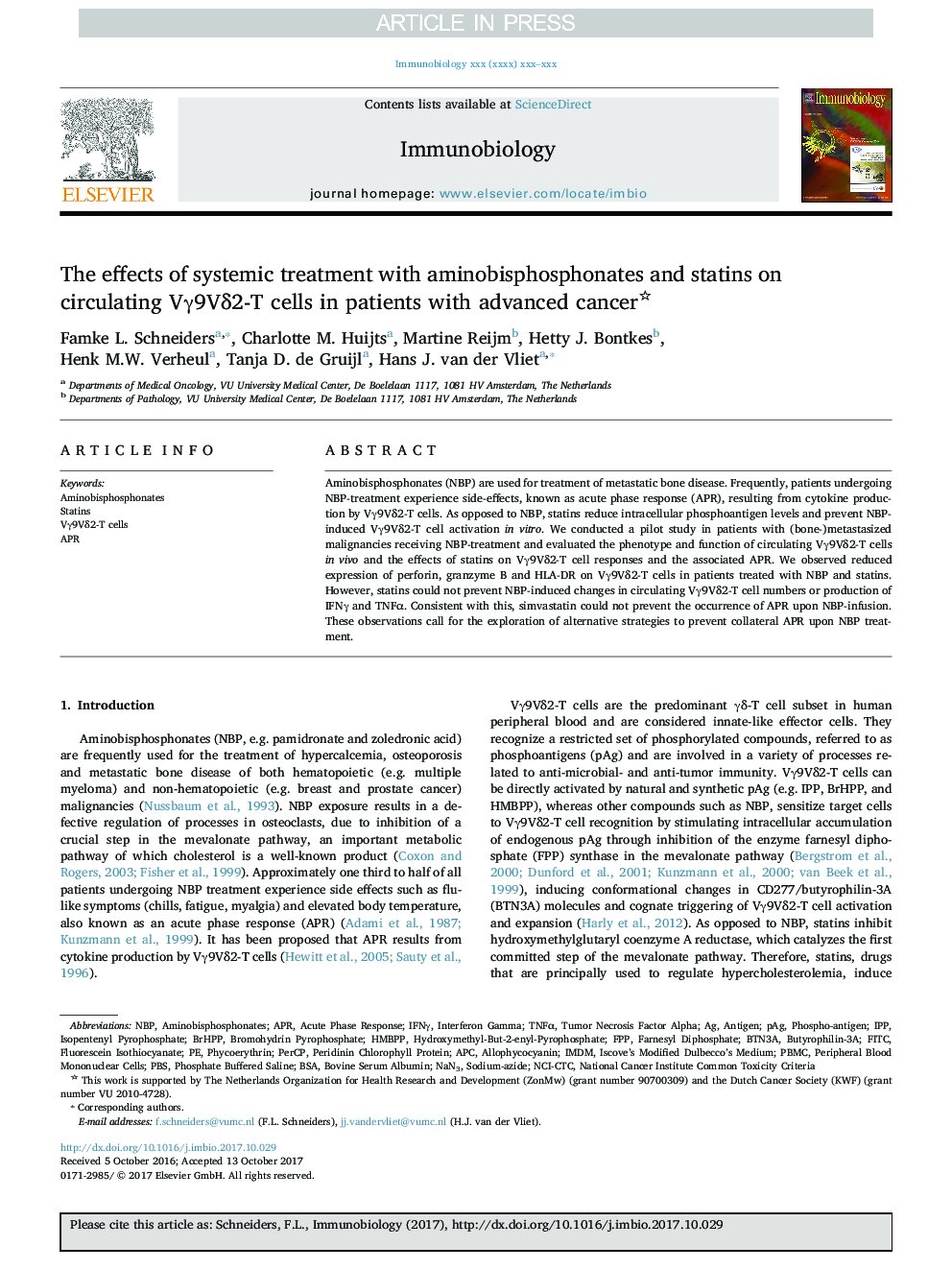| Article ID | Journal | Published Year | Pages | File Type |
|---|---|---|---|---|
| 8472069 | Immunobiology | 2018 | 7 Pages |
Abstract
Aminobisphosphonates (NBP) are used for treatment of metastatic bone disease. Frequently, patients undergoing NBP-treatment experience side-effects, known as acute phase response (APR), resulting from cytokine production by Vγ9Vδ2-T cells. As opposed to NBP, statins reduce intracellular phosphoantigen levels and prevent NBP-induced Vγ9Vδ2-T cell activation in vitro. We conducted a pilot study in patients with (bone-)metastasized malignancies receiving NBP-treatment and evaluated the phenotype and function of circulating Vγ9Vδ2-T cells in vivo and the effects of statins on Vγ9Vδ2-T cell responses and the associated APR. We observed reduced expression of perforin, granzyme B and HLA-DR on Vγ9Vδ2-T cells in patients treated with NBP and statins. However, statins could not prevent NBP-induced changes in circulating Vγ9Vδ2-T cell numbers or production of IFNγ and TNFα. Consistent with this, simvastatin could not prevent the occurrence of APR upon NBP-infusion. These observations call for the exploration of alternative strategies to prevent collateral APR upon NBP treatment.
Keywords
TNFαHMBPPNCI-CTCNaN3PerCPNBPIMDMIFNγPAGAPCIPPPBSFPPFITCPBMCBSAbovine serum albuminallophycocyaninaminobisphosphonatesAprStatinsIscove’s Modified Dulbecco’s Mediumisopentenyl pyrophosphatetumor necrosis factor alphaperipheral blood mononuclear cellsfarnesyl diphosphatephycoerythrinPhosphate buffered salinefluorescein isothiocyanateAntigenacute phase responseperidinin chlorophyll proteinInterferon gamma
Related Topics
Life Sciences
Biochemistry, Genetics and Molecular Biology
Cell Biology
Authors
Famke L. Schneiders, Charlotte M. Huijts, Martine Reijm, Hetty J. Bontkes, Henk M.W. Verheul, Tanja D. de Gruijl, Hans J. van der Vliet,
